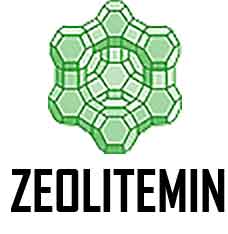Natural Soil Amendment - Widely Use of Special Fertilizer
Zeolite Fertilizer Soil Amendment: NPK & Water Retention
Natural Zeolite is an Effective Natural Soil Amendment
100% natural mineral amendment with a Best cation exchange capacity for economic absorption.
Zeolite is dense and better porous with a molecular sieve structure. The unique natural attributes act as an effective mineral sponge, Absorb more water, drawn in, and collected by the zeolite granular, once mixed into the soil it creates space for crop aeration. Since the molecule is of a negative molecular charge and pH neutralizing it holds moisture longer than sand perlite, coco-coir, soil, clay, etc. while also slow-release fertilizer in the soil and prevent root-rot. Zeolite is used as natural soil amendment to work with soil fertilizer to be soil conditioner of PH and CEC of soil,and adsorbing heavy matels from soil.
In traditional agriculture, horticulture, and farming clinoptilolite is used widely as a slow-release carrier of fertilizers and as a soil buffering and aerating agent. Zeolite’s natural characteristics allow it to effectively adsorb macro and micro nutrients, with a pore size ranging from 4 – 7 angstroms. Especially, the natural zeolite clinoptilolite has a particular nutrient release curve that enables the mineral to adsorb nutrients and hold on to them well enough to withstand leaching by way of water runoff, but at the same time lightly enough that the plant roots can draw the nutrients back out.
Zeolite’s natural crystalline structure contains more pores and channels allowing oxygen to flow in and out of the mineral while also trapping and storing the oxygen. It was improved the availability of oxygen to the roots by zeolite and the aeration of the soil in general deterring anaerobic bacteria,root-rot, and stagnation.
Fertilizer requirements are reduced While nitrogen help to stimulate plant growth, it also contributes to water pollution; up to 70 percent of nitrogen contained in fertilizers is lost to the soil environment. Reduces nitrogen fertilizer requirements as a large portion of nitrogen fertilizer leach through the growth zone and into the aquifer. Zeolite will hold nitrogen and prevent the pollution of the water table by nitrates and nitrites.
Quickly use Zeolite, It will cut fertilizer and water costs by holding the nutrients and water in the root zone until the plant is ready to utilize them. It doesn’t require more fertilizer and water to be applied. Zeolite prevents compaction, increases infiltration, and helps the aeration of deep root systems due to its high surface area and porosity. This promotes the best stewardship of the land by reducing pollution brought on by fertilizers leaching to the groundwater or running off into surface water sources.
When used clinoptilolite properly, can yield some impressive results in regards to faster germination times, faster growth rates, larger plants, crop yields and don’t require more fertilizer and water applications. Clinoptilolite has a high CEC that enables a greater loading of plant nutrients such as nitrogen & micronutrients. It helps to hold more nutrients in the growing farm and is plant accessible but isn’t soluble in water.
Zeolite as molecular sieve is a 100% natural mineral product that improves fertilizer quality and productivity while withholding toxins from the environment. Zeolite is 100% natural for organic operations and when composted with manure, it becomes a natural fertilizing system.
Soil Amendment & Additive
Zeolite based fertilizers are known as “intelligent fertilizers” due to their ability to regulate the release of nutrients to the soil; nutrients are held in the growth zone and are plant accessible but not water soluble. The availability of nutrients improves the overall strength and performance of plants and produce. Zeolite improves soil structure by pairing cation exchange capacity with an affinity for ammonia and potassium. These properties allow zeolite to buffer soil and prevent the toxicity that is often caused by a buildup of ammonia.
Aeration
Zeolite is the ability to retain moisture is another positive aspect of using Zeolite as a soil amendment of this natural resource.Zeolites are great for aeration as they can hold up to 60% of their weight in water due to the highly porous molecular sieve structure.Clinoptilolite Zeolite acts as a non-form changing, permanent water reservoir which provides prolonged moisture during dry periods as well as promoting rapid re-wetting and improved lateral spread in the root zone during irrigation. This, in turn, reduces the quantities of water needed for irrigation.
The highly porous molecular sieve structure of natural zeolite also helps to keep the soil well aerated. Unlike other soil amendments such as lime and clay, Zeolite isn’t broken down over time but remains in the soil to improve nutrient and water retention which can significantly reduce costs of water and fertilizers over time. Zeolite’s porous structure will not clog soil pores over time like clay will.
Zeolite also prevents soil compaction and works to increase infiltration, both of which promote aeration of deep root systems due. This process is made possible by the mineral’s high surface area and porosity.
Unlike soil amendments such as lime, zeolite does not break down over time. Instead, it remains in soil to improve nutrient retention. In agriculture and horticulture, zeolite is used as a slow releasing carrier of fertilizers and agrochemicals like insecticides, pesticides, and growth stimulators. The mineral is particularly useful for recultivation, increasing the nitrogen balance in light and sandy soil, and increasing the production capacity of acid and devastated soils (Rehakova et al., 2004).
Reduce Soil Fertilizer Use
Today, Customers spend close to tens of billions of USD per year on lawn and garden products. A large amount of this annual spending is on the fertilization and aeration of lawn and gardens. Zeolite soil amendment can help to reduce soil fertilizer application requirements on lawns and gardens by using ion-exchange at the molecular level to draw in soil fertilizer and intelligently release it as the plant needs it.
Zeolite is composed of a sponge-like framework of aluminum and silica atoms, all of which are connected by oxygen atoms. It locks water molecules and nitrogen into this framework and releases them to root systems as required. Zeolite soil conditioner will also optimize minimize the amount of soil fertilizer that leaches out of your garden and yard through the soil or water runoff. Various studies have shown that excess runoff of salt from ice melt as well as these fertilizers can be harmful to the environment and can lead to toxic algal blooms and other environmental problems.
Zeolite is used as soil amendment that is great for aeration as they can hold up to 60% of their weight in water due to the highly porous molecular sieve structure. Because of these properties, zeolite promotes the long-term health of potted plants, floral gardens, vegetable gardens, trees and shrubs, and turfgrass.
Unlike soil amendments such as lime, zeolite does not break down over time. Instead, it remains in the soil to improve nutrient retention. Because of its superior absorption and adsorption properties, zeolite reduces water and fertilizer costs by retaining beneficial nutrients in the root zone .
The porous structure of the mineral promotes active soil that remains aerated and moist over time. Because zeolite is not acidic, its use with fertilizers can buffer soil pH levels, which reduces the need for lime applications (Polat et al., 2004). Due to these properties, zeolite is beneficial both in terms of economic and environmental factors.
Zeolite is a unique natural attribute that has numerous advantages in the field of water retention, conservation, and nutrient leaching prevention.
Zeolite is capable of holding up to 60% of its weight in water. Analysis results have shown Zeolite can increase water infiltration by 7%-30% on gently sloped land and up to 50% on steeply sloped land.When the soil is in drought conditions, the moisture can be increased by 0.4%-1.8% and 5%-15% in general water situations.
Therefore, overland surface runoff is reduced, and protecting lands from erosion.The long-term use of soluble NPK fertilizers is a major cause of groundwater contamination. Clinoptilolite Zeolite reduces nitrate leaching by inhibiting the nitrification of ammonium to nitrate.
Turfgrass by using Zeolite Fertilizer
Turfgrass is one of the most widely used grasses in the China; it covers approximately 46.5 million acres and is commonly found on golf courses. A significant volume of water is required for turfgrass to remain lush and healthy. In many cases, golf course superintendents operate within the terms of consumptive use permits that regulate the amount of water that can be used each day to maintain facilities (Shaddox, 2004). This has required managers to maintain quality turf with limited water supplies. One strategy that balances the quality of turfgrass with available water supplies is soil modification. Essentially, fertilizers (i.e. soil amendments) are used to increase plant available water, promote cation exchange capacity, and enhance nutrient availability (Shaddox, 2004).
A challenge associated with soil amendments are threats to surface and groundwater quality due to the leaching loss of nitrate, ammonium, and phosphate. A significant number of studies have examined challenges related to water availability and leaching, and many report on the ways zeolite can be used to remedy these issues.
The use of water soluble-fertilizers to add-in Nitrogen, Potassium, and Phosphorus to turf can have a low-efficiency rating and runoff when spread onto unamended sand-based soils.
Zeolite enhances the performance of fertilizers by making them resistant to leaching, immobilization, and gaseous losses. They are particularly useful in reducing leaching in sandy soils by increasing the CEC values and decreasing volatilization.
Zeolite itself carries small amounts of plant nutrients. Their use as inorganic amendments stems primarily from their high nutrient-exchange capacities, which allow them to absorb and release plant available nutrients and moisture without changing or breaking down the structure of the Zeolite. This absorption/adsorption allows Zeolite to hold nutrients in its structure which acts as a slow release fertilizer to exchange nutrients with turf as needed, increasing fertilizer efficiency. This is especially important during turf establishment or heavy rainfall which can increase leaching to 10x normal (Shaddox, 2003) especially in low CEC sand based soils.
Once entered into soil either through a mixture of organic material such as compost or top-dressed after aeration, Zeolite will work its way down into the root zone and proceed to provide benefit year after year, while still draining after compaction because of its porous structure.
Turf Maintenance A BMP study done by Cornell University in 2014 speaks on water infiltration rates that are dependent on soil makeup and texture. Sandy soils tend to have a high porosity and greater infiltration rates which affect root zone depth and watering frequencies. Because of this, amendments are often needed to increase nutrient and water holding capacity (NYUgolf.edu). Preferential flow and compaction restrictions can lead to dry spots or saturated areas that Zeolite can help amend and work the water flow toward the more desirable matrix pattern.
Infiltration Most turfs are constructed using a sand substrate that promotes rapid water infiltration and high air porosity. Zeolite acts similarly in terms of air porosity while increases infiltration. In 2007, the USGA released a summary of root zone amendments showing the downsides and lack of root zone maturity to non-amended sandy soils.
Gardening by using Zeolite Fertilizer
Nitrogen, a constituent of chlorophyll, is vital for plant growth and influences the yields and quality of horticultural plans (Malekian, et al., 2011). However, low levels of nitrogen in soil limits plant growth and fertilizers are used to overcome this limitation. While nitrogen stimulates plant growth, it is the major nutrient of concern in water pollution; up to 70 percent of nitrogen applied in normal fertilizers is lost to the environment (Malekian, et al., 2011). Scientists search for natural products that improve fertilizer quality and performance but do not pollute the environment.
Natural zeolites have received attention as soil amendments due to physical and chemical properties that make them suitable carriers of plant nutrients. At the same time, their cation exchange capacity and high affinity for ammonia pull excess nitrogen into their honeycomb structure, preventing it from entering water supplies (Malekian, et al., 2011).
Zeolite serves as natural, non-toxic carrier of fertilizers. When applied to gardens at the beginning of a vegetation period, soil and plants benefit from an even fertilizing effect throughout the entire growth period (Rehakova et al., 2004). Zeolite locks essential nutrients and compounds into its honeycomb structure and releases them gradually into the soil and root system of plants.
Just as important as nutrient retention is the hydration and dehydration capacity of zeolite, which improves water balance in the soil (Rehakova et al., 2004). This is particularly important when growing produce that is highly moisture sensitive, particularly vineyard cultures and fruit.
A study by Rehakova et al. (2004) compared the root biomass and growth rate of vegetables and fruit fertilized with zeolite against non-fertilized control samples. The results indicated that zeolite had a significant impact on final biomass and growth rates. For example, the biomass of parsley increased from 487 g per meter (control group) to 1500 g per meter (zeolitic fertilizer). The same rate of biomass increase applied to carrots and onions. Researchers also observed an increase in the harvest of small fruit. Strawberries fertilized with zeolite yielded a harvest that was 70 percent larger than the control group (Rehakova et al., 2004).



